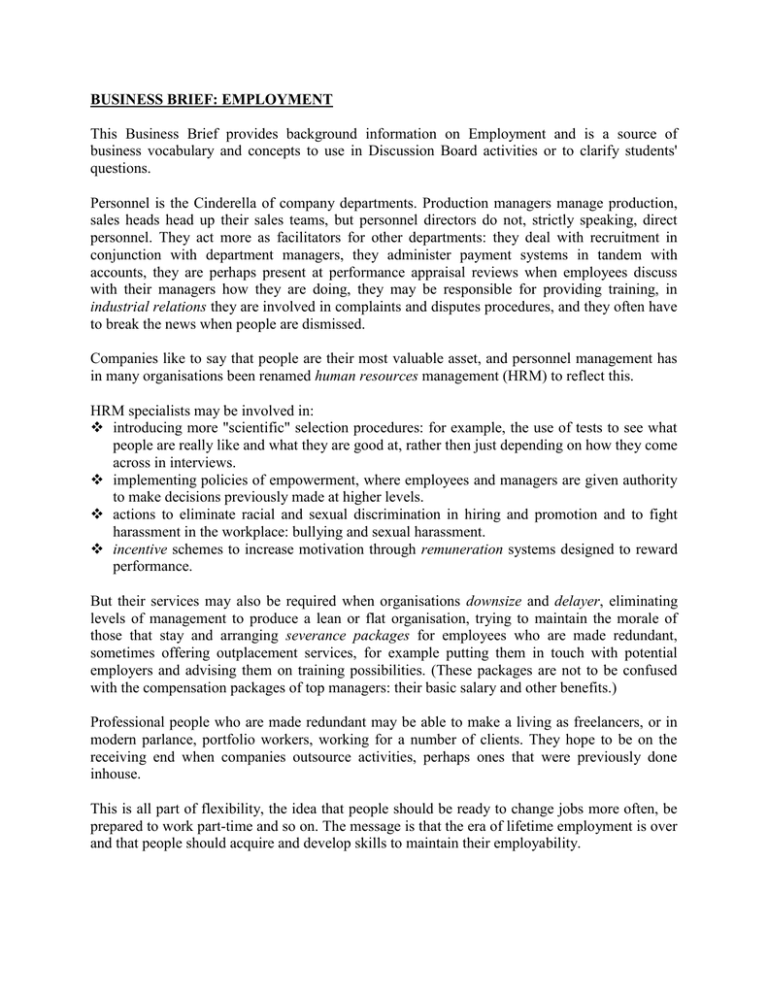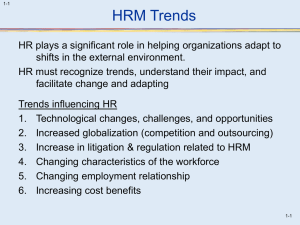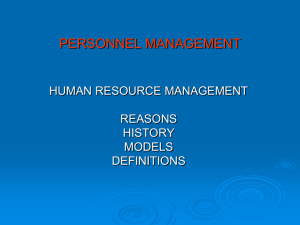BUSINESS BRIEF: EMPLOYMENT
advertisement

BUSINESS BRIEF: EMPLOYMENT This Business Brief provides background information on Employment and is a source of business vocabulary and concepts to use in Discussion Board activities or to clarify students' questions. Personnel is the Cinderella of company departments. Production managers manage production, sales heads head up their sales teams, but personnel directors do not, strictly speaking, direct personnel. They act more as facilitators for other departments: they deal with recruitment in conjunction with department managers, they administer payment systems in tandem with accounts, they are perhaps present at performance appraisal reviews when employees discuss with their managers how they are doing, they may be responsible for providing training, in industrial relations they are involved in complaints and disputes procedures, and they often have to break the news when people are dismissed. Companies like to say that people are their most valuable asset, and personnel management has in many organisations been renamed human resources management (HRM) to reflect this. HRM specialists may be involved in: introducing more "scientific" selection procedures: for example, the use of tests to see what people are really like and what they are good at, rather then just depending on how they come across in interviews. implementing policies of empowerment, where employees and managers are given authority to make decisions previously made at higher levels. actions to eliminate racial and sexual discrimination in hiring and promotion and to fight harassment in the workplace: bullying and sexual harassment. incentive schemes to increase motivation through remuneration systems designed to reward performance. But their services may also be required when organisations downsize and delayer, eliminating levels of management to produce a lean or flat organisation, trying to maintain the morale of those that stay and arranging severance packages for employees who are made redundant, sometimes offering outplacement services, for example putting them in touch with potential employers and advising them on training possibilities. (These packages are not to be confused with the compensation packages of top managers: their basic salary and other benefits.) Professional people who are made redundant may be able to make a living as freelancers, or in modern parlance, portfolio workers, working for a number of clients. They hope to be on the receiving end when companies outsource activities, perhaps ones that were previously done inhouse. This is all part of flexibility, the idea that people should be ready to change jobs more often, be prepared to work part-time and so on. The message is that the era of lifetime employment is over and that people should acquire and develop skills to maintain their employability.





